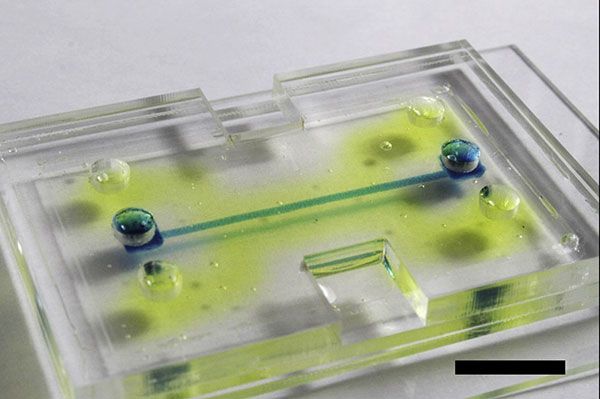At the National Institute of Biomedical Imaging and Bioengineering (NIBIB) and Tufts University a team has developed a microfluidic chip that mimics human tissue for use in drug testing applications. The chip is based on a silk gel that overcomes the limitations of polydimethylsiloxane (PDMS), a silicon material widely used to host living cells within microfluidic devices. As an example, PDMS has problems handling lipids, absorbing them instead of letting them move freely along with other nearby compounds and so not applicable with lipid-based compounds. Additionally, PDMS is not biodegradable and so a small device based on it can’t easily be used as an implantable. Silk, on the other hand, just needed a bit of engineering to make a candidate that overcomes many of PDMS’s limitations.
Jul 12, 2016
Microfluidic Chips Made of Silk Replicate Human Tissues for Drug Testing, Implantable Applications
Posted by Karen Hurst in categories: bioengineering, biotech/medical, computing
Read more










Comments are closed.